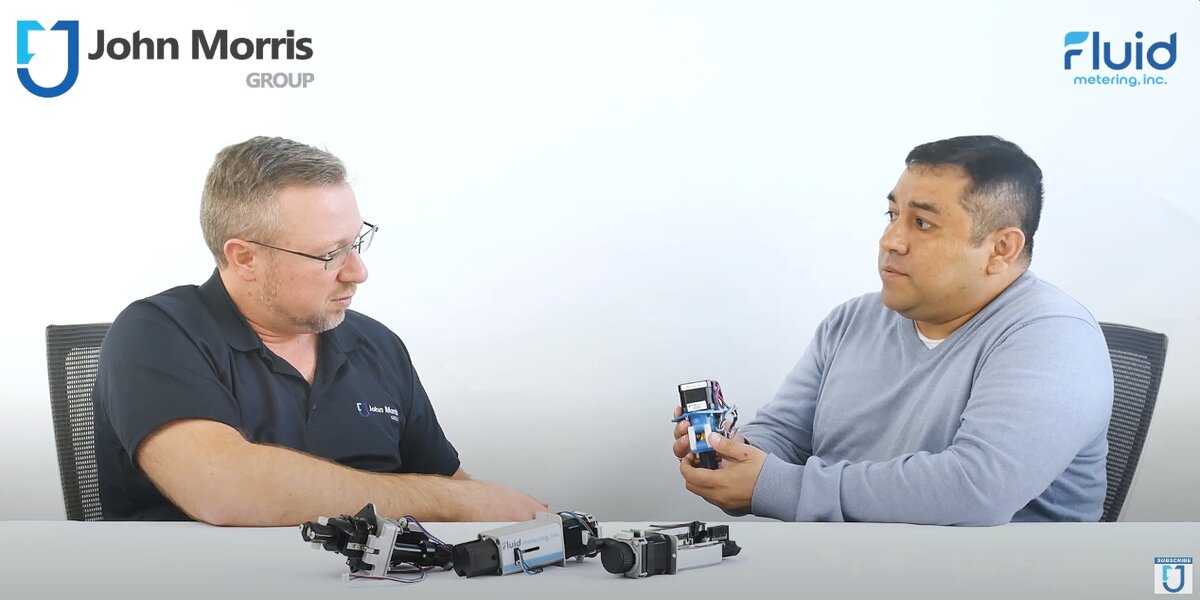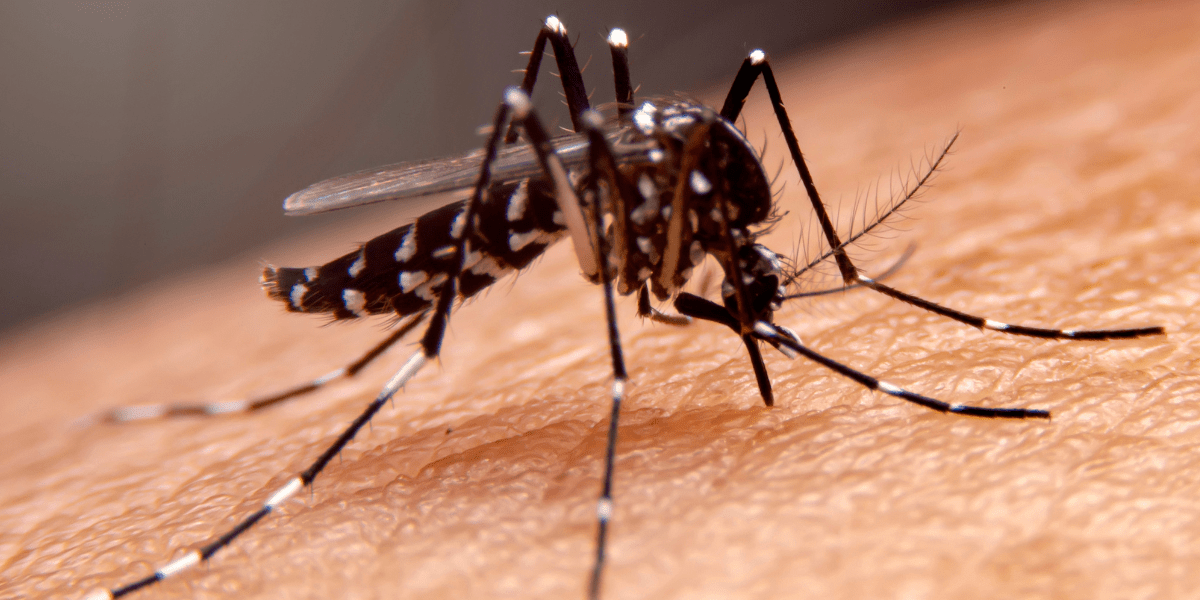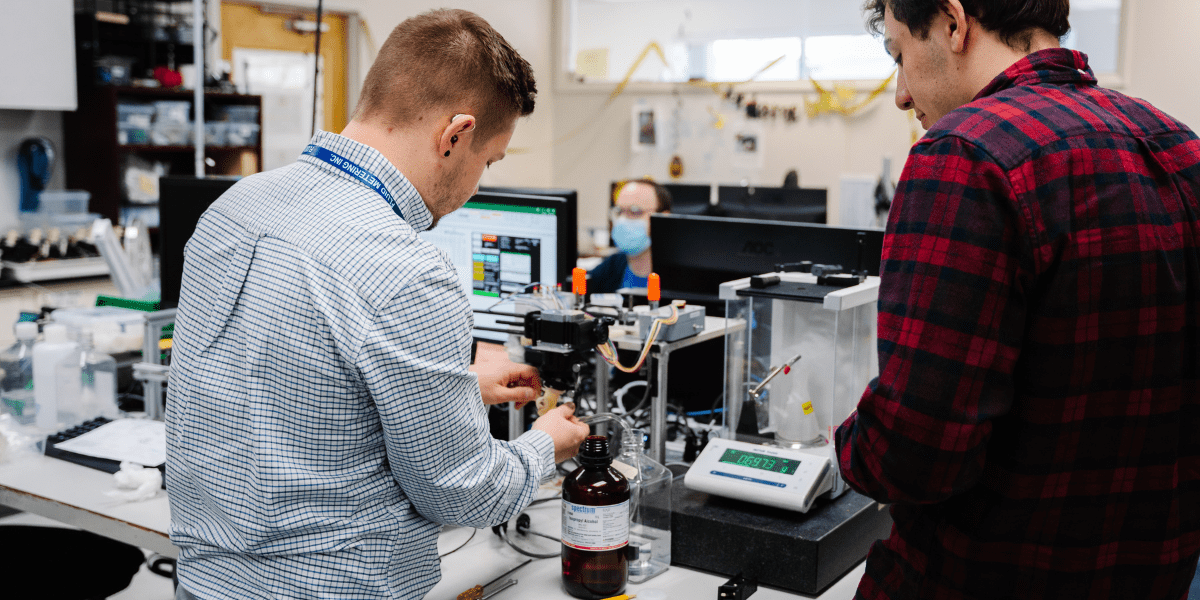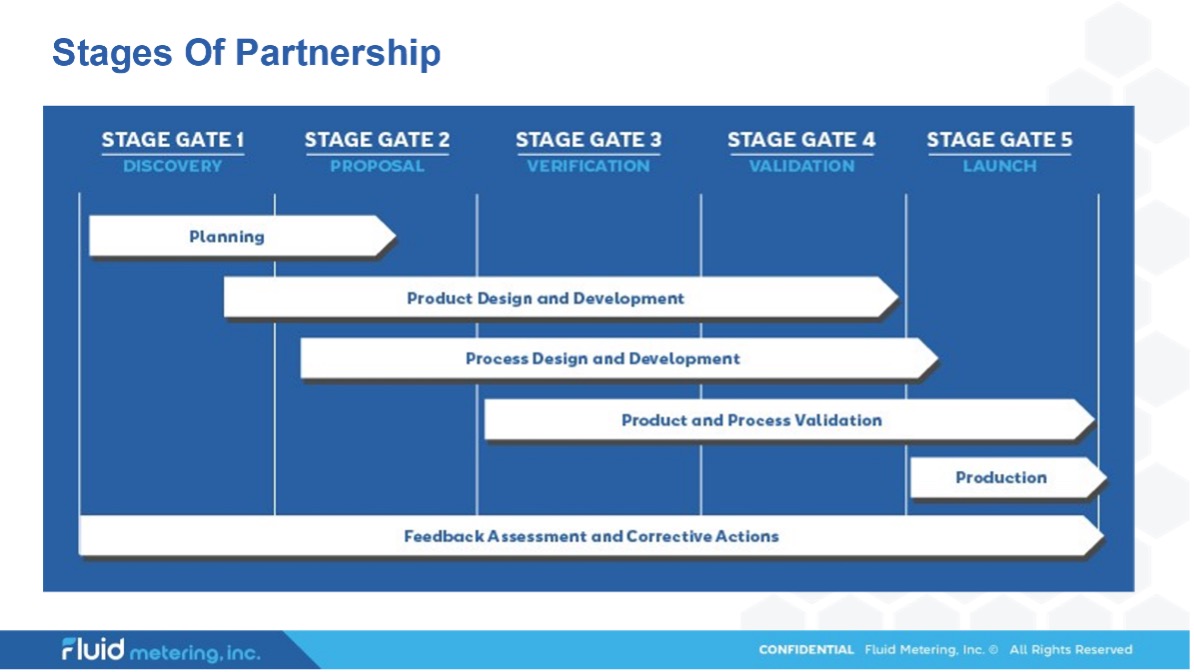During a recent trip to Fluid Metering’s exclusive distributor in Australia, Luis Cajas, Customer Care Manager at Fluid Metering, sat down with Andre Wyzenbeek, Director of Sales at John Morris Group, to highlight the newest technologies for engineers who are building OEM applications in the medical or life sciences industries. With 26 years of microfluidic experience, Luis understands the complexities that engineers encounter when creating next-generation fluidic applications that require a rigorous list of requirements.
Fluid Metering Sits Down with John Morris Group to Discuss Innovations in Dispense Pump Technology
Oct 5, 2023 10:00:00 AM / by Luis Cajas posted in OEM Pumps, Strategic Partnership
Mosquito Abatement: What Could a Next-Generation Fogger Look Like?
Sep 28, 2023 9:45:19 AM / by Luis Cajas posted in Strategic Partnership
When considering changing laws, it will be important for mosquito abatement manufacturers to understand new chemical and fluid regulations as innovations begin.
Mosquito Abatement: Understanding The Right Approach to the Application’s Success
Sep 26, 2023 12:44:58 PM / by Luis Cajas posted in Strategic Partnership
Mosquito abatement is the practice of controlling or eliminating mosquitos to prevent the spread of disease. London Fog has been a leading manufacturing expert in mosquito abatement for over 55 years and a trusted partner for over 40 years.
London Fog tests, assembles, and provides quality control for all their equipment in Minneapolis, Minnesota. Their products are used worldwide including; Asia, Africa, the Caribbean, Europe, the Middle East, and Central, South, and North America.
Luis Cajas, Customer Care Manager at Fluid Metering, sat down with Chris Norgren, President and CEO of London Fog, to understand the importance of fluidic pumps in mosquito abatement applications and common mistakes manufacturers make when building a new fogger.
The following interview has been edited and condensed for clarity.
Luis: Thank you for joining me today, Chris. Before we start, could you share who you are and what your company does?
Chris: We're a minority owned manufacturing company and our mission is to provide equipment to eradicate vectors of disease spread by adult mosquitoes, flies, and ticks. Common insects transmit diseases, including West Nile virus, Malaria, Encephalitis, and Zika. London Foggers, the brand name of our products, are used extensively by public health agencies and districts to control adult mosquitoes globally. We ship and have shipped to every continent except Antarctica. Why? Because you need two things to have mosquitoes: heat and water.
Luis: Can you speak about the types of customers who are purchasing London Foggers?
Chris: We primarily deal with two types of customers. First, are doctors of epidemiology and then we talk to ranchers, farmers and pesticide application professionals. Recently, we have seen an uptick in deer farmers, people who raise deer for hunting, because ticks and mosquitos affect the animals adversely. Our customers get a choice of price and size options for two types of foggers: ultra-low volume (ULV) or thermal fogging. For ULV, the goal is to have the least amount of chemical sprayed out of the fogger to kill the greatest number of pests. Thermal fogging is different because it uses a fuel tank to heat and vaporize a liquid insecticide and carrying agent into a mist that is then dispersed into the air.
Most of our business is from the truck mounted ultralow volume (ULV), sold to Municipalities. We also sell smaller machines for the back of ATV’s and golf carts that can be used by small parks, agriculture, ranches, and poultry farms. 50% of our business is domestic and 50% is International.
Luis: How do you explain the advantages of pump technology to your customers? I would think it’s as simple as the construction of the machine. London Fog uses the Q2CSY, a stainless-steel piston with a carbon liner and a stainless-steel casing connected to a 12 Volt DC motor.
Chris: The fogger is a simple machine with an engine, blower, and pump that is hooked up to a battery, it is incredibly important for the pump to be durable, repeatable, consistent, and accurate. That’s why we have worked with Fluid Metering to supply the pumps for decades. The pump is the heart of the fogger, not the brain, and if the heart dies, our clients would be in trouble. So, the construction has to remain simple because if the pump were to fail without an easy way to replace it, we wouldn’t have repeat business.
The pump is secured in a black box that is lockable, as waterproof as possible, and is typically found on the back of a pickup truck. The pumps have to be accessible if they are being used four to five hours a day, for five to six days a week. So, when it’s time to replace the pump, it’s as easy as popping out the old one and connecting the wires to the new one.
Luis: Do you have any valves inside the black box?
Chris: No, the pump box has no valves to regulate the pump since the flow rate is set. But there is a flush solenoid because after every spray cycle, customers are supposed to flush the pump. There is a product called Simple Green which is a detergent product that flushes out pesticides. Some chemical manufacturers may recommend flushing the pump with a solvent, either way we found both extends the life of the pump.
Luis: Do you see common mistakes from other manufacturers in your industry?
Chris: There are a few. The first common mistake is with pump selection for the fogger. Many manufacturers choose a pump that uses plastic parts instead of ceramic. Instead of replacing a pump once or twice within a fogger's lifespan, manufacturers will end up replacing a pump ten-times over because they associate a lower price with a cost-effective spray cycle. But what these manufacturers forget about is the key functionalities a pump should have: repeatability, accuracy, dependability, and consistency.
Second, manufacturers don’t focus on a droplet size delivery from the pump. If we think about an ULV scenario, we’re looking for the smallest particle to fly the farthest that kills the most bugs. Some manufacturers are dousing 40 to 60 ounces (about 2.37 L) per minute on a certain area with a fan to spread the pesticides. In this case, it’s difficult to kill adult mosquitos when the application is dousing and not getting to the exact location of where they are.
London Fog tests every machine with a droplet testing process for how the pump and nozzle interact. 90% of the droplets coming out of the nozzle must be 20 microns or less to pass and be categorized as ULV.
Luis: In addition, a third common mistake that we have talked about in the past is when foggers run dry because either someone didn’t check the levels of the fluid, or they accidentally left the fogger running. It’s one of the reasons why we recommended the Q2CSY.
---
In the second part of our conversation, Chris will discuss the fluids typically used in foggers and the potential future applications for mosquito abatement manufacturers.
Fluid Metering Keeps OEM Production on Track
Sep 19, 2023 9:15:00 AM / by Colin Rademacher posted in OEM Pumps, Strategic Partnership
For over 64 years, Fluid Metering, Inc. (FMI) has been the trusted benchmark in OEM partnership in terms of fluid control ease of installation, performance, and dependability. Our multidisciplinary team of product specialists and technical experts provide a unique level of service and support from engineering design to inception. Whether it is a complex issue involving fluid dynamics or a common pumping system problem, the result is unparalleled confidence in your flow control solutions.
Why Choosing the Right Partner for your Next Project Matters
Feb 28, 2023 2:30:45 PM / by Colin Rademacher posted in Strategic Partnership
As a mechanical engineer in the life science industry, choosing the right fluid handling supplier is critical for project success. When evaluating potential suppliers, there are several qualifications to consider, backed by data. Now more than ever, it is important to work with a partner who is committed to transparency, tracking, and validation through the project’s entire lifecycle.








